What do London schools need from a new government?
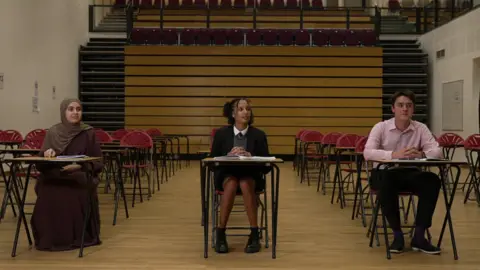 BBC
BBC- Ahead of the general election on 4 July, BBC London went to a west London school to hear concerns of students and teachers on education
- The Labour Party has said it would add 20% VAT to private school fees, to pay for 6,500 extra teachers in England’s state schools. The Lib Dems promise to give a "tutoring guarantee" for children from low-income families as well as increasing the early-years pupil premium to £1,000
- The Conservatives have said they will close university courses in England with high dropout rates and focus more on apprenticeships
We caught up with sixth-formers and teachers at an inner-London school, Chelsea Academy, in west London, as their exam season came to an end.
Established 15 years ago, nearly half of its 1,200 students qualify for extra funding targeted at disadvantaged pupils, well above the national average.
Asked what challenges they have faced at their school this year, student Minnette told us: "I didn't have a science teacher for half of my year and that's greatly affected me now."
Her classmate, Reem, told us: "There are a lot of teacher shortages, at the moment, so it has disrupted some of my studies."
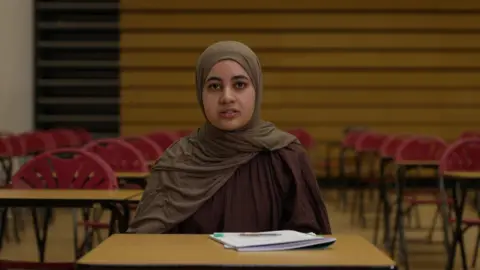
Another student, Isaac, said: "In quite a lot of my subjects I've just had other teachers who are specialists in other subjects filling in."
There were concerns about basic resources too.
"We haven't had access to pens and glues. There's a big shortage with that," Minnette said.
Isaac added: "Pens, whiteboard markers. Things like that shouldn't interrupt learning, but they do if a teacher doesn't have those, or a student does not have those."
Isaac and Reem also have concerns about their next steps in education.
"University is very expensive and I think that needs to be more accessible to more people," said Reem.
Isaac said: "For things like apprenticeships... I think they're brilliant for people who might not see university as an option.
"And that's more than fine. I don't think there is enough emphasis on it."
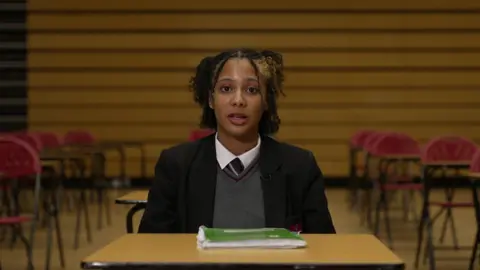
For the teachers, workload and conditions have meant staff retention and recruitment has been challenging.
Sarah Thompson, head of geography, said: "To put it bluntly, I would say the profession is more surviving at the moment on the skill and the passion of the individuals within it."
Principal, Mariella Ardron, said: "We're facing the same issue were facing four or five years ago around recruitment and retention, and some of the issues around mental health of our young people. They are still very much there. "
'Profession surviving on passion'
Teacher Idris Sheikhnur added: "It's been really challenging, particularly the level of workloads, the amount of stress involved."
Asked what they would like to see change, Ms Ardron said: "There is a real need to make sure that both teaching staff and support staff have pay rises that are fully funded by the government, so that the profession is really attractive to come in to."
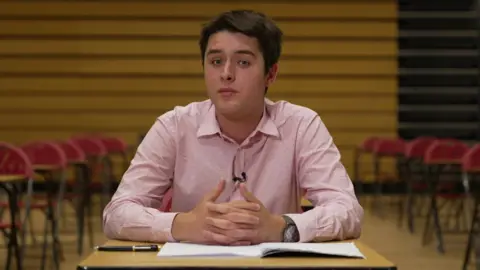
Mr Sheikhnur added: "Dealing with the funding towards teaching assistants and classroom needs. We have children who have English as a second language and with special needs."
Ms Thompson said: "Behaviour is an increasingly big challenge in schools.
"I would also say the mounting pressures that are being put on teachers to not just be educators but to be those voices of support and to be a parenting role, in some ways, when that is not available.
"I would not say that is reflected in our pay."
Mr Sheikhnur explained: "There aren't many benefits to being a teacher, which is driving people away from the workforce.
"I think when I see things like the flexibility other people have in their jobs, there is little wonder why people are leaving."
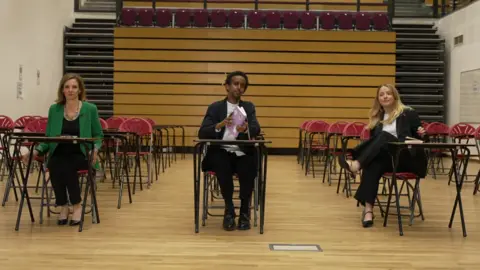
The Labour Party has said if elected, it would add 20% VAT to private school fees, to pay for 6,500 extra teachers in England’s state schools. It says that the Institute of Fiscal Studies think tank states the tax will raise up to £1.6bn a year.
In their 2024 manifesto, the Lib Dems promise to give a "tutoring guarantee" for children from low-income families as well as increasing the early-years pupil premium to £1,000. For students from low-income families, there is a promise to bring back maintenance grants, which were scrapped in favour of loans in 2016.
The Conservatives have said they will close university courses in England with high dropout rates. The party wants to fund 100,000 extra apprenticeships a year by the end of the next Parliament.
Listen to the best of BBC Radio London on Sounds and follow BBC London on Facebook, X and Instagram. Send your story ideas to [email protected]
